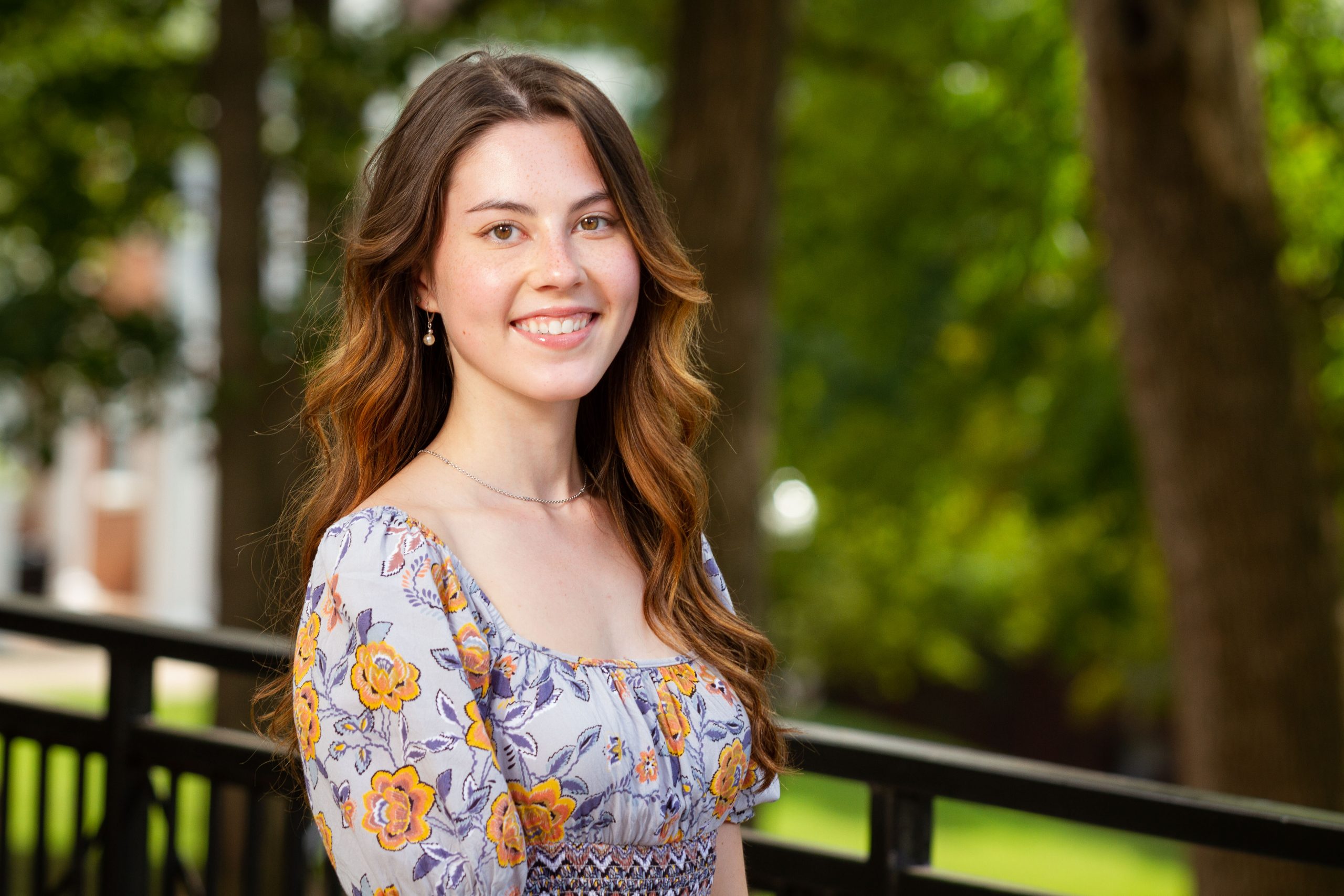Jordan Jones (Kenton ’10) and Sarah Pritchett (Clark ’10) are among sixty high school juniors and seniors completing high school at the Carol Martin Gatton Academy of Mathematics and Science in Kentucky.
At this time of the year, their thoughts—and those of other seniors across the country—are on college admissions and scholarships. Recently, the two students received word that they’re part of a group even more select than the Gatton Academy.
Both Jones and Pritchett were named candidates for the 2010 Presidential Scholarship Program.
For Jones, the news of the honor came as a bit of a surprise.
“I’m more excited now that I understand what the program is,” she said. “Before I got nominated, I’d never heard of it. It’s nice to receive recognition for doing well on a standardized test, but intimidating at the same time, because I know every other candidate performed well, too.”
All graduating high school seniors who are citizens of the United States and have scored exceptionally well on either the SAT or the ACT college admission test during the two-year window that begins in September, 2007 and runs through October, 2009, are automatically considered for participation.
For Academy students, the ACT and SAT are tests they have experienced since middle school.
“I didn’t ever get too nervous about the ACT and SAT,” Pritchett said. “In fact, I think I felt more relaxed taking them than I do when I take regular exams for one of my classes. It also helps me to take each
section as it comes, instead of focusing on the fact that the entire test will take three to four hours.”
The U.S. Department of Education then looks at test records for the top 30 males and top 30 females in each of the states/jurisdictions. The combined file of scores from the top male examinees and top female examinees are then ranked from high to low in each state. The scores associated with the top 20 male examinees and top 20 female examinees are used to identify the candidates in each state. When ties occur in the cut off score, more than 20 persons of that gender are selected in that state.
After being notified of their selection, Jones and Pritchett submitted candidacy materials, including essays, self-assessments, secondary school reports, and transcripts. Candidates are evaluated on their academic achievement, personal characteristics, leadership and service activities, and an analysis of their essay.
Many of those achievements and experiences will come from the time they’ve spent as students at the Gatton Academy.
“The Gatton Academy has provided me with so many opportunities that I wouldn’t have had at a regular high school,” Jones said. “Besides receiving a more rigorous education, I’ve developed good relationships
with the professors and great friendships with other students–from Gatton and WKU–and I’ve been able to pursue interests outside of academics. There are still difficult moments, but at the end of each day I remember how thankful I am to have this privilege. I can’t imagine what my life would be like without the Gatton Academy.”
Pritchett added that the Academy helped her grow both academically and as a person.
“Choosing to apply to the Academy was one of the best decisions I have made,” she said. “It has opened so many opportunities, from research to the chance to be a part of such a close community.”
Later this month, approximately 500 semifinalists are chosen by an independent, national committee of educators convened by the Commission on Presidential Scholars. Six to twenty semifinalists are identified for each state/jurisdiction by the review committee. The number of semifinalists identified per state/jurisdiction is based on a proportionate number of test takers for that state.
In April, the Commission on Presidential Scholars makes the final selection of the 121 students. One young man and one young woman are chosen from each state, the District of Columbia, the Commonwealth of Puerto Rico, and from families of U.S. citizens living abroad. In addition, up to 15 students are chosen at large.
A list of students nationwide selected as Candidates for the President Scholars Program is available online at: http://www2.ed.gov/programs/psp/2010/candidates.pdf.
For more information, contact Corey Alderdice (270) 745-6565.






